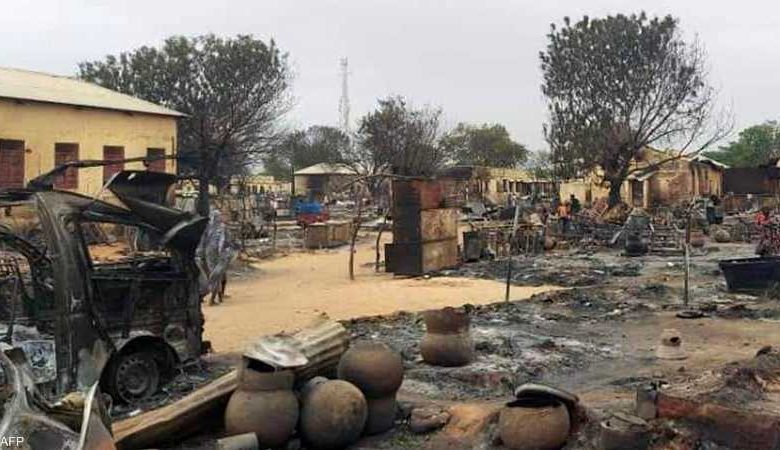Sudan Reconstruction: Stage Requirements

Sudan Events – Nahid Oshi
The war that is now taking place in Sudan, as it enters its 8th month, has created a lot of chaos and destruction of institutions and infrastructure, and the production movement has been disrupted in the states where the fuse of war is burning. However, those who witness the events see the inevitability of stability and that the war no matter how long it lasts will end sooner or later.
Sudan must be reconstructed, that’s why economist Dr. Naji Mustafa, speaking to (Sudan Events), said that the most important thing that should be done to reconstruct Sudan after the war that destroyed much of the infrastructure, is to form a legitimate government for the sake of the legality and legitimacy of reconstruction contracts, so reconstruction under (a transitional sovereign council, A transitional government, that is, a transitional situation and acting ministers) is rejected.
Political stability:
He added that there must be complete political stability because any political conflict would destroy all projects.
The military institution must be unified and any manifestations of armament must be disarmed (no armed movements, no arming of tribes), and any weapon must be removed, and the military institution must be one institution (no movements or militias), because it is the threat that can spark the crisis again.
Therefore, a parliamentary council must be formed to approve reconstruction contracts and accept grants and donations.
With the necessity of forming field technical committees that will work from an early stage (now) to setup the reconstruction map in accordance with the state’s strategic plan and national reform priorities.
Forming a higher committee for reconstruction (which will be set up by the parliament) and forming an independent higher technical legal committee to follow up on reconstruction and projects and their implementation.
Economic decline:
Professor Ibrahim Onour, professor of economics and finance at the University of Khartoum, believes that the situation of the political instability that has plagued the Sudanese state since independence is the primary reason for the economic deterioration over the past years because Sudan (after independence did not settle on a system of government) agreed upon among its political components. Therefore, it has become revolving in a vicious circle between dictatorial military regimes on the one hand and fragile, weak civilian regimes that are not eligible to last for long periods. Therefore, the political reality in Sudan has become a vicious circle in an ongoing political struggle, with no continuing dictatorship and no established civil regimes protected by the people. Based on this reality, the political file, the system of government, and developing a constitution that regulates political action in the country should take a wide range of Sudan’s priorities after the war as well as rebuilding what has been destroyed by the war. He said that the importance of this vision lies in the absence of political stability, and it is not possible to attract national or foreign investments to rebuild what was destroyed by the war. Note that financing infrastructure investments requires huge, long-term financing, which will not be available in light of the reputation of political conflict that has characterized the Sudanese state over decades, especially during the years of the Revolution. Therefore, the construction period should be undertaken by a competent, non-partisan government staff working under a military council that will continue until completion of construction and reconstruction mission.
Onour explained that the Sudanese economy continued to suffer from structural distortions in its structure, but the outbreak of the rebellion war after April 15 of this year was like pouring oil on the bitter reality before the war, and thus the destruction of factories, hospitals, and the rest of the infrastructure units harmed the national economy tremendouosly.
Many challenges:
However, he drew attention to the major challenge facing the management of the Sudanese economy in the post-war period, which is the restoration of what was destroyed during the current war. The basic tasks of rebuilding what was destroyed by the war are as follows.
The first task is to address the damage to factories, health sector institutions, electricity and water in the national capital,
Then restructuring the banking sector to be able to contribute to the task of financing the rebuilding of the infrastructure that was destroyed during the war.
With the necessity of reforming the supervisory and institutional framework in the Sudanese state to monitor reconstruction plans and attract support and financing resources.
Securing financing:
Below are the funding sources, Onour said.
To secure funding, sovereign decisions must be issued to ensure the strengthening of the state’s regulatory framework to ensure that all state resources are utilized to achieve the objectives of this stage. This requires several procedures, including:
Strictly controlling the production of Sudanese gold as it is the largest and easiest resource to enrich the state treasury through the state’s monopoly on its export and issuing deterrent penalties for its smuggling, knowing that in previous periods 75% of its production was smuggled, whose value is estimated at 12 billion dollars annually, which requires reviewing all concession contracts for foreign and national production companies of gold.
Establishing a fund for export earnings in which all export resources are collected, including the exports of armed forces companies, to manage foreign exchange resources and direct them according to the priorities of the construction phase.
With the announcement of an urgent appeal to the people of Sudan abroad to transfer their savings to build Sudan by developing a strategy that attracts remittances from workers abroad, which are estimated at around 8 billion dollars annually through official channels.
Developing an incentive policy for exporting Sudanese agricultural products, particularly gum Arabic, livestock, sesame, and groundnuts.



